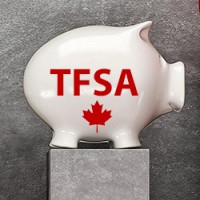Last updated: June 05 2018
Avoid Penalties: File TFSA Return by July 2

The TFSA filing deadline is coming up on July 2 (the standard June 30 deadline falls on a weekend). It doesn’t apply to all TFSA investors, but for those who do have to comply, abiding by the guidelines is essential to avoid penalties.
The penalty for late filing of Form RC243 Tax-Free Savings Account (TFSA) Return is the same as for late filing of the T1 return (5 percent of the balance owing plus 1 percent for each full month overdue, to a maximum of 12 months). However, with no possibility of a refund, all returns must be filed on time or face a penalty.
Luckily, most TFSA investors will not have to file the return. Only those subject to penalty taxes are required to file the return to compute and pay that penalty tax. The penalty taxes are:
- Tax on excess TFSA amounts
- Tax on non-resident contributions
- Tax on non-qualified investments
- Tax on prohibited investments
- Tax on an advantage
The most common tax is the tax on excess contributions. This occurs when a taxpayer contributes more than their available TFSA contribution room. Often, this occurs because taxpayers are unaware that contribution room generated by withdrawals is only refreshed at the beginning of the following year. So, although you can re-deposit withdrawals, you may have to wait until the following year to do so if you do not have other available contribution room. The tax on excess TFSA amounts is 1 percent of the excess for each month that the funds remain in the plan. Use RC243-SCH-A Schedule A – Excess TFSA Amounts to compute the excess tax.
If a taxpayer makes a TFSA contribution while a non-resident, that contribution is subject to tax at 1 percent for each month that the contribution remains in the TFSA. Use RC243-SCH-B Schedule B - Non-Resident Contributions to a Tax-Free Savings Account (TFSA) to compute the tax on non-resident contributions.
Taxpayers who hold non-qualified or prohibited investments are subject to a tax of 50 percent of the fair market value of the investments each year until the investments are removed from the TFSA.
Taxpayers who are provided with an advantage related to their TFSA contributions, including a loan where TFSA assets are used as collateral, are subject to a tax on 100 percent of the fair market value of the benefit received or the amount of the loan or debt associated with the TFSA. Where the contributions that relate to the advantage are subject to other excess taxes, such as excess contributions, the tax on an advantage is reduced by the other penalty taxes.
This year, June 30 falls on a Saturday so the return will be considered filed on time if it is postmarked on or before July 2.
Additional educational resources: to better help clients with investment reporting and tax-efficient strategies, improve your insight with Knowledge Bureau’s Tax Strategies for Investors certificate course. A free trial is available. Or, pursue a complete designation and become a Master Financial Advisor – Retirement Services Specialist. The November CE Summits workshops will also offer year-end planning strategies for investors and small businesses.
COPYRIGHT OWNED BY KNOWLEDGE BUREAU INC. 2018.
UNAUTHORIZED REPRODUCTION, IN WHOLE OR IN PART, IS PROHIBITED.





